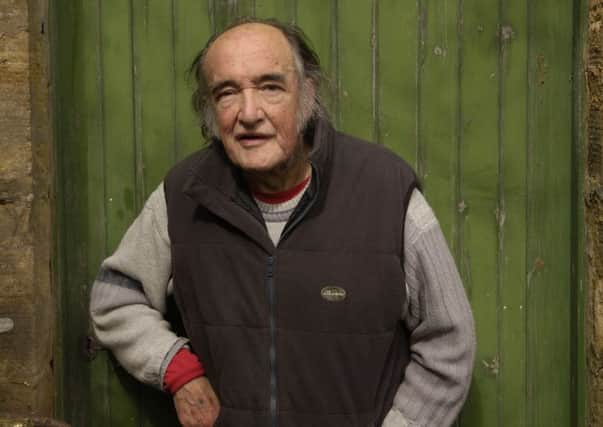Film/theatre: Joyce McMillan on the Tom McGrath strand at this year's Edinburgh Film Festival


For Fulton, though, this was special. He was talking to a man, born in Glasgow in 1940, who had come out of Rutherglen in the late 1950s, inspired by the waves of Beat Generation music and poetry that were sweeping across the Atlantic; and had plunged straight into the heart of underground culture in 1960s London, writing his own poetry, and becoming founding editor of the seminal 1960s underground journal, International Times. McGrath had known Trocchi personally, along with many other Beat Generation stars; and he was able not only to tell Fulton how it was, but to change forever his sense of how Scottish culture was linked to the great global movements that swept the world, in the late 20th century.
So 20 years on – and eight years after Tom McGrath’s death, in 2009 – Fulton is more than delighted to have a chance, through this year’s EIFF programme, to bring together his passion for film and his passion for McGrath, in a series of events that range across film screenings, play readings, music and lectures, and aim to capture the extraordinary spirit of a man whose interest in culture and creativity simply knew no boundaries.
Advertisement
Hide Ad“I can’t help feeling that this is an important time to revisit Tom and his legacy,” says Fulton, taking some time out in the Filmhouse cafe. “Just for a start, we need to introduce him to a younger generation, and highlight to them that this man was a visionary talent and cultural provider for Scotland, of a kind we rarely see. His legacy is too big to be ignored, and as well as inviting people to experience his work during this Festival, we’re hoping to put together an online body of information about Tom and his work that will be readily accessible, and will help keep his spirit alive for young artists now.”
Staged as part of EIFF’s 2017 retrospective programme The Future Is History, the Tom McGrath season includes screenings of his own 1982 BBC Play For Tomorrow, The Nuclear Family, and of Peter Whitehead’s famous 1965 documentary Wholly Communion, which records that year’s remarkable underground poetry event at the Albert Hall, in which McGrath read alongside Allan Ginsberg and others. There’s also a special tribute evening at the Queen’s Hall featuring Tommy Smith and the Scottish National Jazz Orchestra, with a programme designed to reflect McGrath’s lifelong relationship with jazz and poetry; and a series of play-readings at the Traverse Theatre, directed by actor and theatremaker Tam Dean Burn, which includes McGrath’s 1978 science fiction play The Android Circuit, and his 1977 masterpiece The Hardman, in which the role of the character based on criminal-turned-sculptor Jimmy Boyle, who co-wrote the play, will be played by the leading Scottish actress Kate Dickie.
“The point about this retrospective,” says Fulton, “is that it has three strands, and is in part a response to the shock of last year’s Brexit vote. The strands are about British culture over the last 50 years, and Scotland over the same period; then there’s a science fiction strand, which reflects on our changing views of possible futures.
“And if you look at Tom McGrath’s work, you can see how perfectly it fits in with all three strands. There’s the British screen culture of the Sixties and Seventies, which obviously helped to shape the world he lived in – and it is fascinating that he chose that Shirley Clarke film, one of the few from the period directed by a woman, as his favourite. Then there’s his investigation of some of the deep sources of violence, and a certain kind of stereotyped masculinity in Scottish life, in The Hardman. And of course, because he was always experimenting, there’s the science fiction play, in which he imagines the consequences of a sexual relationship between an astronaut and a robot called Ruby Pulse.
“What we have to remember, though,” adds Fulton, “is that Tom did all this without the internet. In order to be as connected as he was with all these creative movements across the world, he had to travel, and be there, and then write about it in paper magazines that were literally produced on manual duplicating machines.
“In his Off The Page interview, though, he does say that he loved that experience, the ‘electric contact’, he called it, that you get with live performance. So I’m delighted that this season contains both screenings of important films by and about Tom, and a strong element of live performance. He was so brilliant at relating to culture to absolutely anybody, no matter how they connected with it. And I want to celebrate that brand of confidence he had, to go out, to travel the world, to connect with so much of what was happening, and then to bring it all back here to Scotland, to inspire other artists, and set them on their way.”
*Tom McGrath events at the Edinburgh International Film Festival take place between 22 June and 1 July, www.edfilmfest.org.uk.